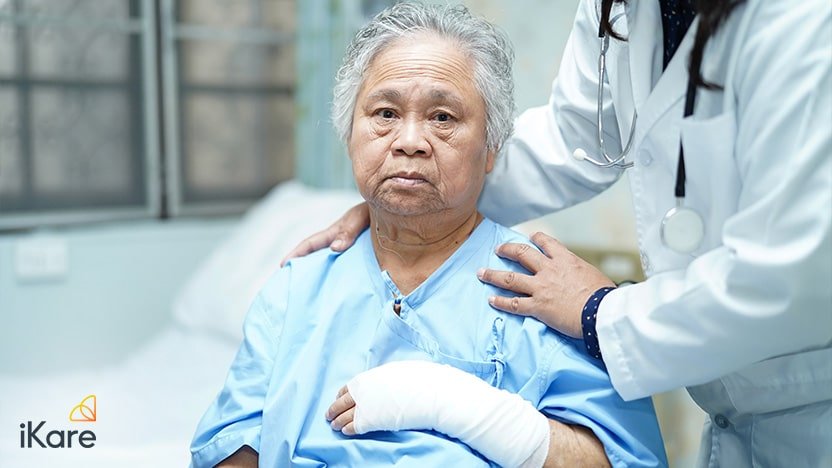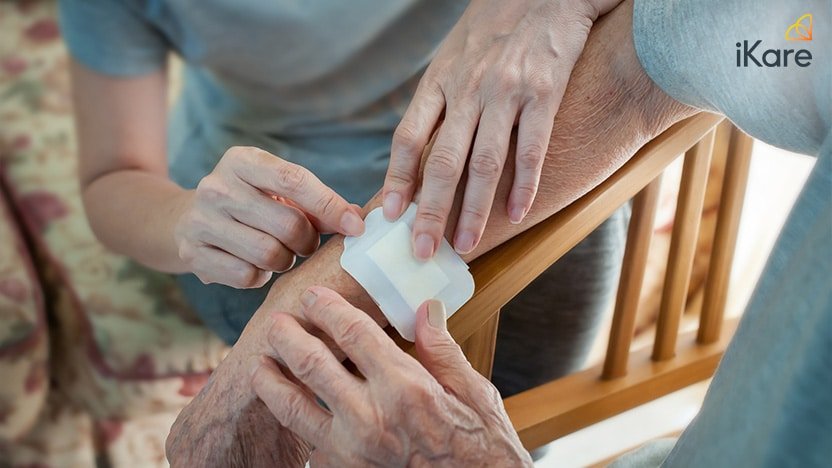
While our skin undergoes constant regeneration and growth during our youth, this restorative process progressively decreases as we age. Hence, proper wound management plays a crucial role in ensuring the well-being and comfort of our elderly loved ones, especially when they’re recovering from injuries. This is particularly important as improper management can lead to pain or even debilitation. To help you facilitate optimal wound care for your senior ones and enhance their lives, iKare, a provider of home nursing services in Singapore, has compiled a set of effective tips. Keep reading to uncover these strategies.
Prioritise hygiene

Maintaining cleanliness is not just a preventive measure against infections; it also expedites the healing process of wounds in seniors to help them return to their daily routine quicker. For this reason, it is vital to adopt regular personal hygiene practices, ensuring that the area surrounding the wound remains void of harmful bacteria.
Equally important are practices like frequent changes of bed linens and clothing to reduce the risk of contamination. Cleaning and disinfecting living areas can also help prevent the spread of germs that might pose a threat to wound healing, further enhancing recovery journeys. You may your elderly loved ones maintain optimal hygiene levels for efficient wound care by making sure they have easy access to personal care products and assistance, such as by engaging trained nurses.
Learn more: Wound Care Management in Elderly | iKare
Monitor for signs of infection
Paying close attention to your loved one’s condition and monitoring for signs of infection is crucial to avoid complications that may arise from untreated wounds. Keep an eye out for any changes in wound colour, swelling of the affected area, or an increase in pain, as these could indicate an infection which is typically accompanied by fever. Other symptoms to watch for include an increase in redness around the wound, the presence of pus or a foul odour, and a delay in the healing process. If you notice these signs, provide medical attention or seek professional care promptly to prevent the infection from spreading.
In addition to visual observation, seniors should be encouraged to express any discomfort or unusual sensations they may be experiencing around the wound area. Regular communication between your seniors, their caregivers, including yourself, those providing elderly home care services and/or healthcare professionals is essential. This ensures potential issues are identified and addressed swiftly.
Protect and dress the wound

While cleaning and monitoring are important steps to take, the key to effective wound management lies in protecting and dressing the wound. Dressings should be selected based on the type and severity of the wound, as well as the senior’s skin sensitivity. For minor wounds, such as cuts and abrasions, sterile adhesive bandages or gauze pads can be applied. If there are more significant wounds to care for, seek the expertise of healthcare providers for guidance on applying the appropriate dressings and topical aides.
Consider implementing measures to protect the area from further injury. This may involve providing seniors with suitable footwear to prevent accidental bumps or falls. Creating a safe environment by removing any potential hazards can also contribute to the overall well-being and healing of your loved one.
The impact of chronic wounds on the quality of life for seniors can be detrimental. But with the right prevention and management strategies, we can sidestep these issues and provide the support needed when they arise.
Looking for professional nurse at home services to meet the unique needs of your family? Contact iKare today to find out how our team can assist with elevating the quality of life for your beloved seniors, right in the comforts of your home.

